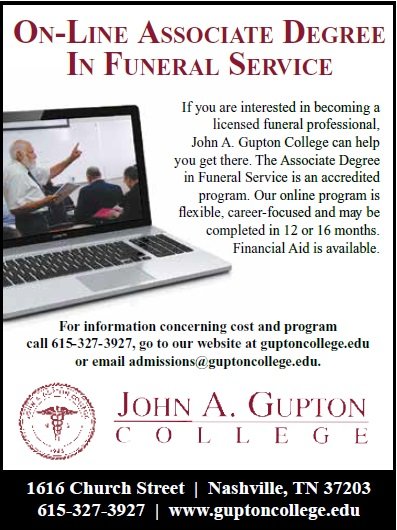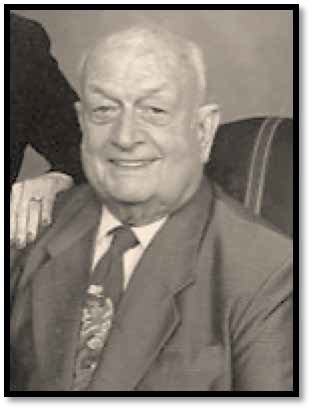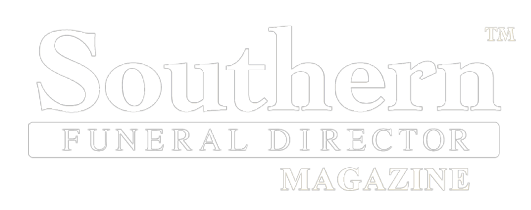(404) 312-6640
Keys to Service = Respect
Has anyone noticed that it seems that culturally in 2015 the notion of respect for other human beings has changed? And not in a good way?
Not to sound negative, but it seems evident that culturally anyway our ability to be respectful to others is changing and has changed – and just possibly not for the good. Ever seen an elderly person who just can’t seem to find anyone to hold a door open for them? Ever tried to make a lane change on the interstate and experienced numerous unmistakable non-verbal signals from other people using their finger digits? I suspect every reader knows precisely what is being addressed in this writing. I would like to suggest that one essential – there are hundreds of essentials in the funeral interview and funeral experience – but a major one, a vital one – is basic human respect.
Interestingly I have concluded that having basic human respect is not a character trait that you can just magically develop by reading a book, or listening to a motivational tape, or even reading this article. Respect is a core character trait, and some people will never develop it and in these cynical times some people seem to have as a source of pride that they don’t respect anyone. You know, the “take no prisoner’s attitude.” I would humbly like to suggest that having no respect for our bereaved client families is not just dangerous, in a caring profession like funeral service it is cruel, thoughtless and ridiculous!
Respect for the client family and their world involves a sincere interest both in them and in their world. We show this interest by the manner in which we attend to them, you know “fuss” over them. We show respect by carefully excluding outside interference as much as possible while we are there with them and exclusively for them, and by demonstrating that what is important to them is important to us. This last sentence sounds good, in fact it sounds terribly attractive. However concerning respect there is a glaring truth: Showing respect to the human race is not easy at times; many times it is simply near impossible.
The insight concerning mutual respect is that we don’t have to like all our client families – but we are expected to respect them, and that is most times the most difficult helping task of all, for respect means unconditional forgiving, unconditional patience, unconditional kindness, unconditional understanding and unconditional support – or at the very least the magnanimous attempt at giving this task our best possible effort at being “unconditional”. This approach to respect is the diametrical opposite of judging a client family as being “weird” a “kook” or “impossible” or “high maintenance.” We don’t have to like them, we have to respect them.
Some thoughtful steps in respect:
1. Accepting the Client Family
All of us in this honored and beloved profession have thought about the important concept of acceptance and the role it plays in the funeral interview and funeral experience. As helping people funeral professionals cannot NOT think about acceptance. It is one of the core values that is inherent in our profession and has been a hallmark of our great profession for hundreds of years. Most funeral professionals are accepting people, but not all.
Basically, to me acceptance of others means treating the client family as an equal and regarding their thoughts and feelings with sincere respect, equal with my own thoughts and feelings. BUT. . . . . . . It does not mean agreeing with them; it does not mean thinking or feeling the way they do; it does not mean valuing what they value. It is, rather, the attitude that the client family has as much right to their ideas, feelings, and values as I have to mine, and that as a funeral professional, I want to do my utmost to understand their life in terms of their ideas, feelings, and values rather than in terms of my own. In reality this is not in the least a simple and task assignment, but it is an extremely valuable attitude to strive for.
 As mentioned such an attitude is often difficult to maintain and even more difficult to communicate when confronted with the “difficult/dysfunctional” client family, which seems to be growing in numbers year by year. The naïve concept that all bereaved client families are like the “Walton’s” on television is simply a myth. The “Walton’s” was a television program, complete with make-up, costumes, memorized lines, props, and predetermined life situations. The “Walton’s” have ended up on celluloid which can be repeated time after time, year after year. There was nothing real about that program in the least. It is the rare 2015 American family that would mirror the ideal of the “Walton’s” – they are out there, many of us wish for this type of life, but it and they are rare.
As mentioned such an attitude is often difficult to maintain and even more difficult to communicate when confronted with the “difficult/dysfunctional” client family, which seems to be growing in numbers year by year. The naïve concept that all bereaved client families are like the “Walton’s” on television is simply a myth. The “Walton’s” was a television program, complete with make-up, costumes, memorized lines, props, and predetermined life situations. The “Walton’s” have ended up on celluloid which can be repeated time after time, year after year. There was nothing real about that program in the least. It is the rare 2015 American family that would mirror the ideal of the “Walton’s” – they are out there, many of us wish for this type of life, but it and they are rare.
I have encountered many different family situations over the years. Some have inspired me as to the limitless possibilities of the human spirit to prevail against the greatest of odds and obstacles, and some have been so complicated, so dramatic, so dysfunctional, that I would just leave the funeral home shaking my head, and hoping that I was good enough to “get through this.”
Client families may be highly emotional or highly intellectual, or the stellar opposite; they may be crystal clear to me or not; they may seem “good” to me or “bad – or even ridiculous and incomprehensible. However as a professional I try (fail many times) to report to myself what I have received from the client family, and no matter what, I attempt to treat whatever they say with respect and the client family as of equal worth with myself. I don’t always succeed, but I make the attempt and many times the attempt is exhausting and just flops.
Another very important aspect of acceptance is the ability to treat as a respected equal someone of another culture, race, color, or faith. This funeral professional attribute and attitude of our hearts is all the more important and magnified as we watch the globe literally shrink before our own eyes. Acceptance does not require strong liking, but acceptance is undoubtedly impossible when strong dislike is present. We cannot truly help a person we cannot accept and/or strongly dislike, in my opinion, and there appears little of anything anyone can do to change the perverted world view of a bigot.
The inability to accept someone may occur even when cultural differences are absent. An honest, authentic, true incompatibility of personalities may exist – I know this has happened to me, and it still happens to me. In short, in the funeral experience we should strive to be able to first and foremost accept ourselves – our ideas and feelings as well – and to act accordingly (if we accept ourselves usually accepting others becomes much easier). Our range of acceptance may or may not broaden with time and maturity, we might well be stuck, but in the end the truth is we can help only when we can accept – there is no way around or a detour to this helping truth in respectfully accepting another person and their feelings.
2. Genuine Liking – A Key in Creating Respectful Rapport
A genuine liking for people is a gift from heaven. We are either born with it or we are not – it is terribly difficult to fake. Those upon whom the gift was not bestowed are neither better nor worse than other people but they do lack a trait highly valued in a helping profession such as funeral service. If our personal preferences lead us to great interest in say machines, plants, animals, abstractions, or whatever, but not to people, we should indulge and foster such preferences – but probably steer clear of funeral service. Some professions do not demand and some even exclude a genuine liking for people. However, for those of us in funeral service a genuine liking of people is essential and it is a real asset in establishing respect.
The funeral professional who genuinely likes people tends to be optimistic about humankind. They feel involved with those about them whether this is person to person or, indirectly, through service to the wider community. The genuinely liking funeral professional tends to be tolerant of people’s weaknesses and foibles but they are also convinced that people have it within
them to act heroically and selflessly. The funeral professional who feels genuine warmth toward people likes to learn about them and their behavior, their motives and reflect upon their inner life.
The “people liking” funeral professional tends to delight in professional literature and human psychology. This type of respectful funeral professional stays clear of pettiness, gossip, and acrimony. If this funeral professionals liking for the human race is indeed genuine, he/she usually does not have a particularly strong insecurity to be liked in return, in other words this respectful professional has learned and accepted the wisdom lesson that you cannot be all things to all people – never under any circumstances, but we can try.
CASE STUDY:
 Throughout my career I have encountered some of the finest, most outstanding human beings imaginable. From this single aspect of a lifelong career I have been most blessed. One personality, one human being emerges as a true contender for the winner of Todd Van Beck’s most respectful human being award, and that person was the late Mr. Ralph S. Turner, who owned A.S. Turner & Sons Funeral Home in Decatur, Georgia. Ralph and I were good buddies and he and I spent many hours together discussing the philosophies of the world. Ralph Turner was a wonderful man and he genuinely liked but most importantly he respected all people. Here is an example – nothing earth shattering, nothing overly dramatic, but abundantly human.
Throughout my career I have encountered some of the finest, most outstanding human beings imaginable. From this single aspect of a lifelong career I have been most blessed. One personality, one human being emerges as a true contender for the winner of Todd Van Beck’s most respectful human being award, and that person was the late Mr. Ralph S. Turner, who owned A.S. Turner & Sons Funeral Home in Decatur, Georgia. Ralph and I were good buddies and he and I spent many hours together discussing the philosophies of the world. Ralph Turner was a wonderful man and he genuinely liked but most importantly he respected all people. Here is an example – nothing earth shattering, nothing overly dramatic, but abundantly human.
Ralph and I were traveling together, going somewhere, and Ralph was driving. We were on a terribly busy street in Atlanta, and the traffic was horrendous. Down the street from where we were was a huge city transit bus that was trying to dodge traffic, trying to pick up passengers, trying to drop them off, and then trying in vain mostly to get back into traffic easily. The other drivers were shaking their fists at the bus driver, honking their horns, coming dangerously close to hitting the bus itself, cutting off the bus – it was just a mess, until Ralph Turner pulled up behind the bus.
Ralph flashed his headlights, and took his hand and waved the bus to pull out in front of us saying as if he was talking to the bus driver one on one; “Go ahead my friend, you’ve had enough trouble today”. I sat in the passenger’s seat and was witness to a great example of simple, authentic, and free human respect take place. I looked at Ralph and said, and I quote, “Ralph, I will never be as kind and nice a person as you are.” Ralph said nothing in return, and we just continued on our journey letting the bus go in front of us for the rest of our trip.
When is the last time you have had someone be that respectful to you? Here is a challenge. Go purchase small note pads, hand them out to your work associate with a small pencil, and ask the group and yourself for one week to write down every respectful gesture or action that they do with another human being. In a week have everyone read their list, and see what is the outcome? Hopefully everyone will have pages of things they did to show respect to another human being. Hopefully that is.
We live in a very cold universe at times. We live in seemingly very cynical times. We live in a world that appears to be addicted to the negative and in proclaiming the negative in every which way possible. Basic human respect in such a complicated impersonal climate, in these particular times in history is definitely a difficult task. However it is my firm conviction that our beloved profession has indeed encountered difficult times in our long and rich history of service to humanity, and in the end our beloved profession has always prevailed. To be sure we have prevailed with the scars and wounds, with some warts, and blemishes, but we have prevailed.
The prevalence of our beloved profession, in the end I believe firmly, is always, and has always been attributable to the basic respectful decency of the average, typical, funeral professional who holds tight to the worthy mission of being one and at the same time the caretaker of the dead and the caregiver to the living. It is indeed an honorable calling.






Comments